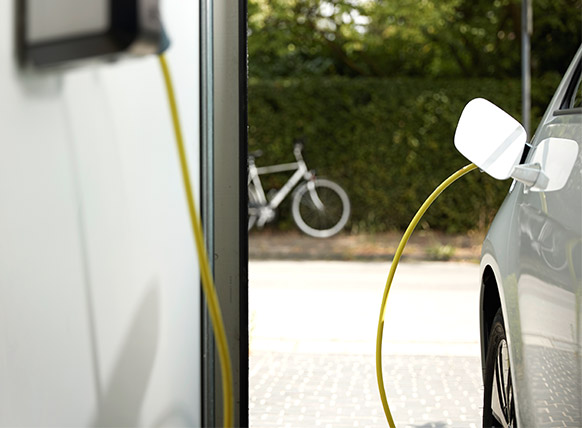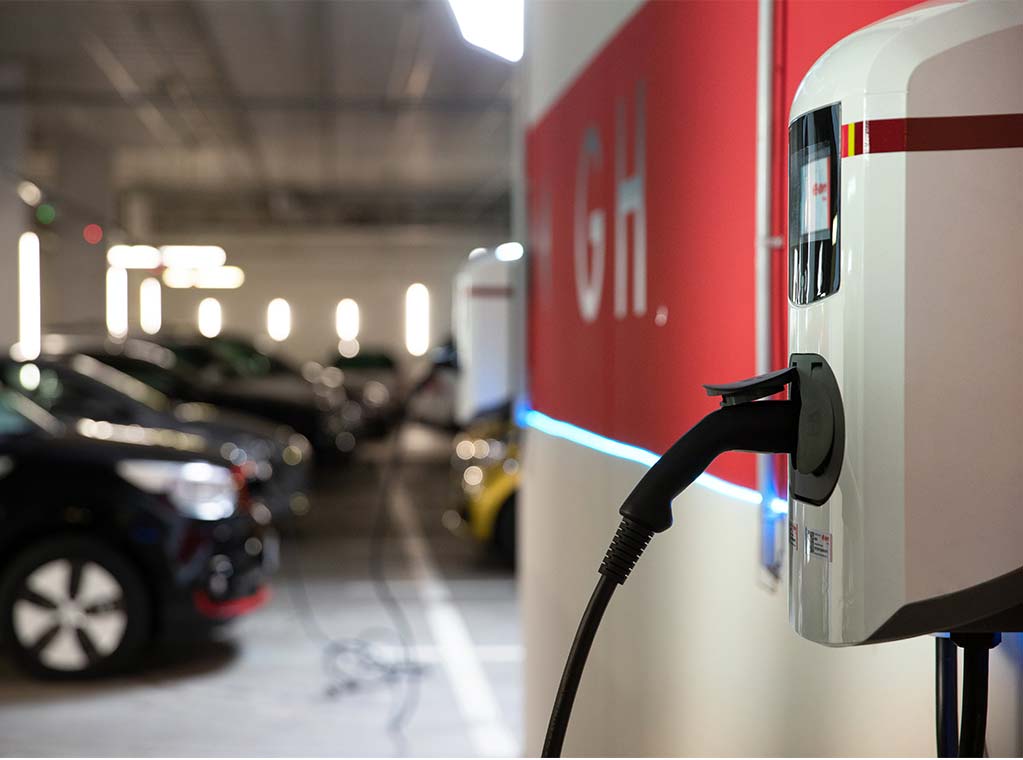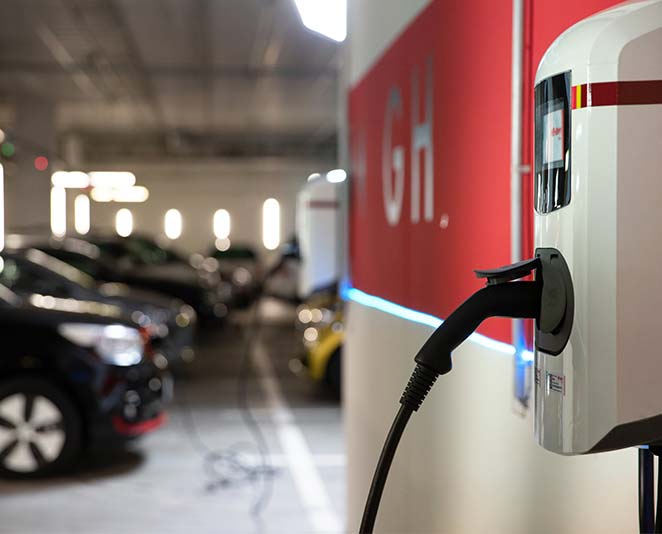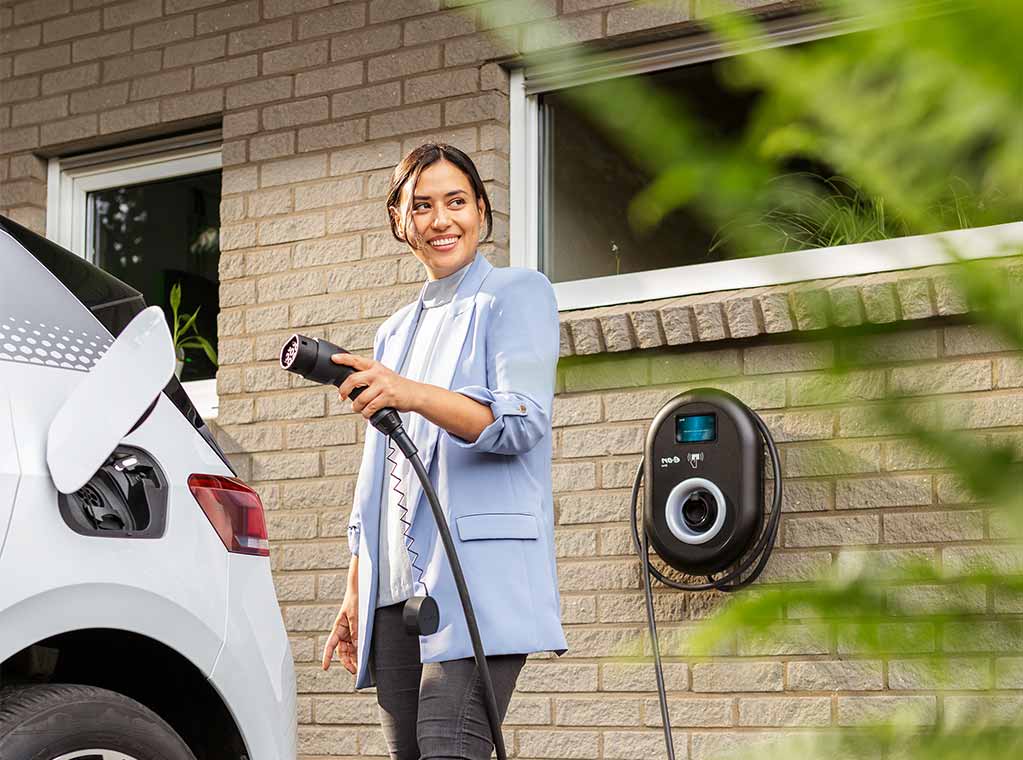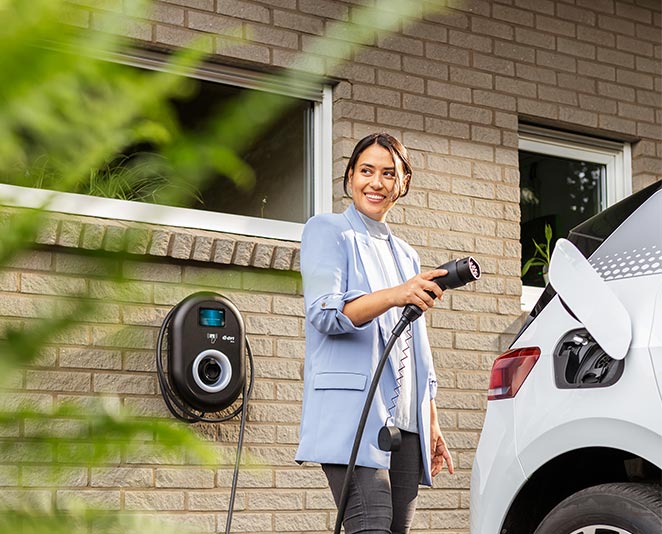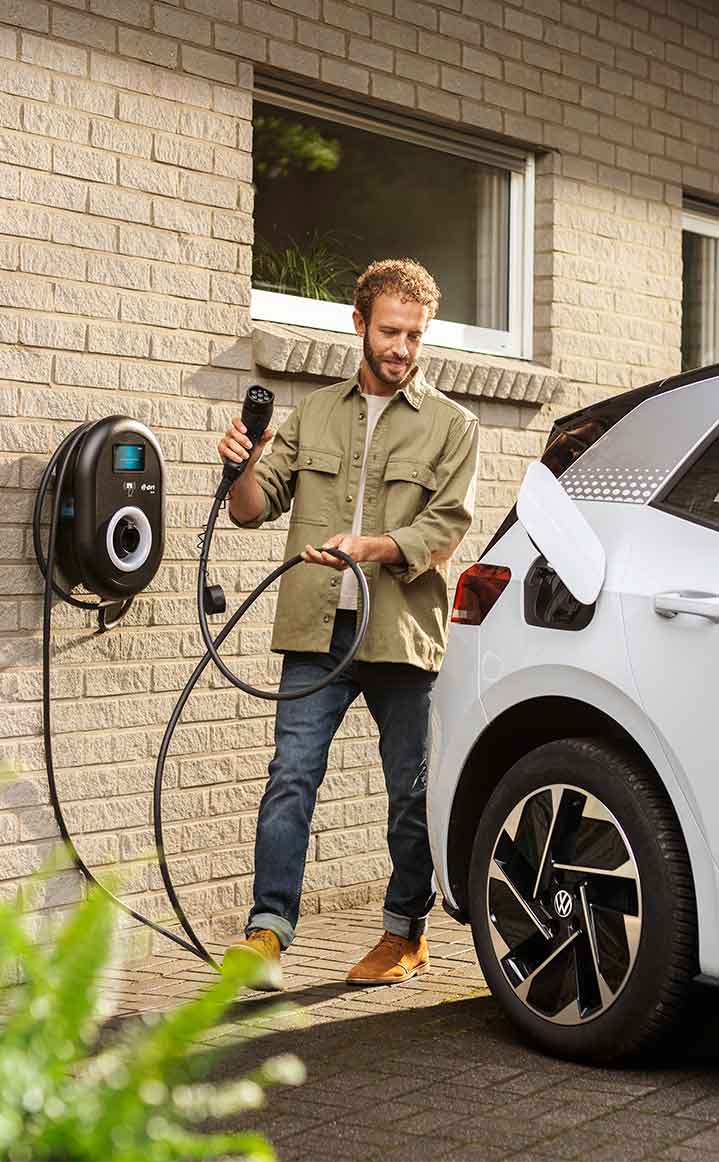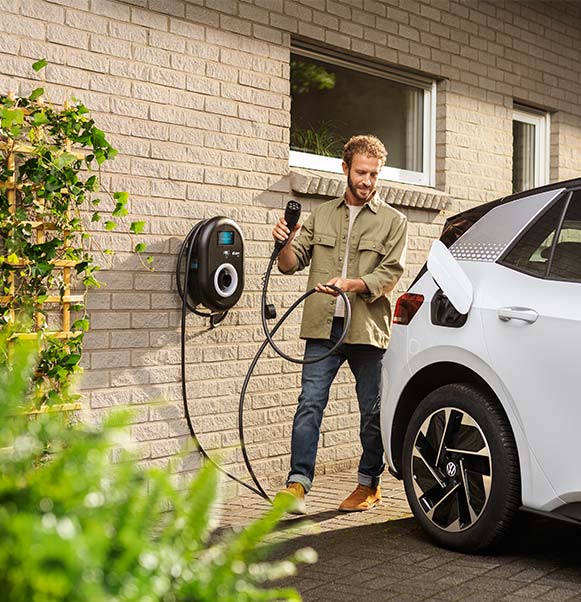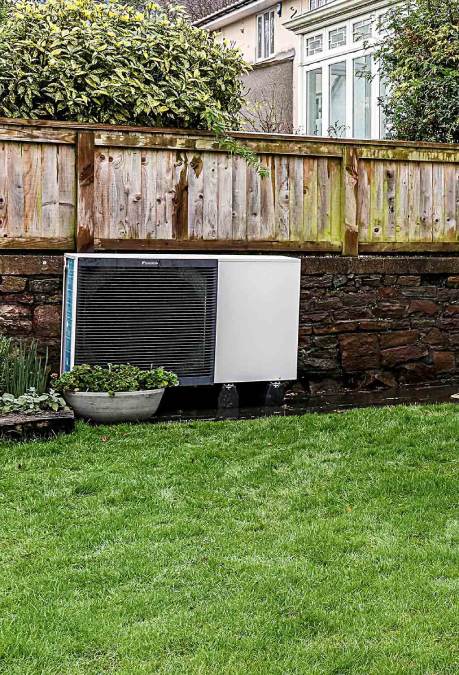Three-pin plug
It's perfectly possible to charge your electric car using a conventional 3-pin plug with an EVSE1 cable (also called a granny cable) and domestic socket, although this method of charging can be very slow. A domestic 2.4kW socket can take over 24hrs to charge your EV battery. This is ok if you're just topping up your battery, but if you have a fully electric BEV2 a dedicated home charge point is most effective.
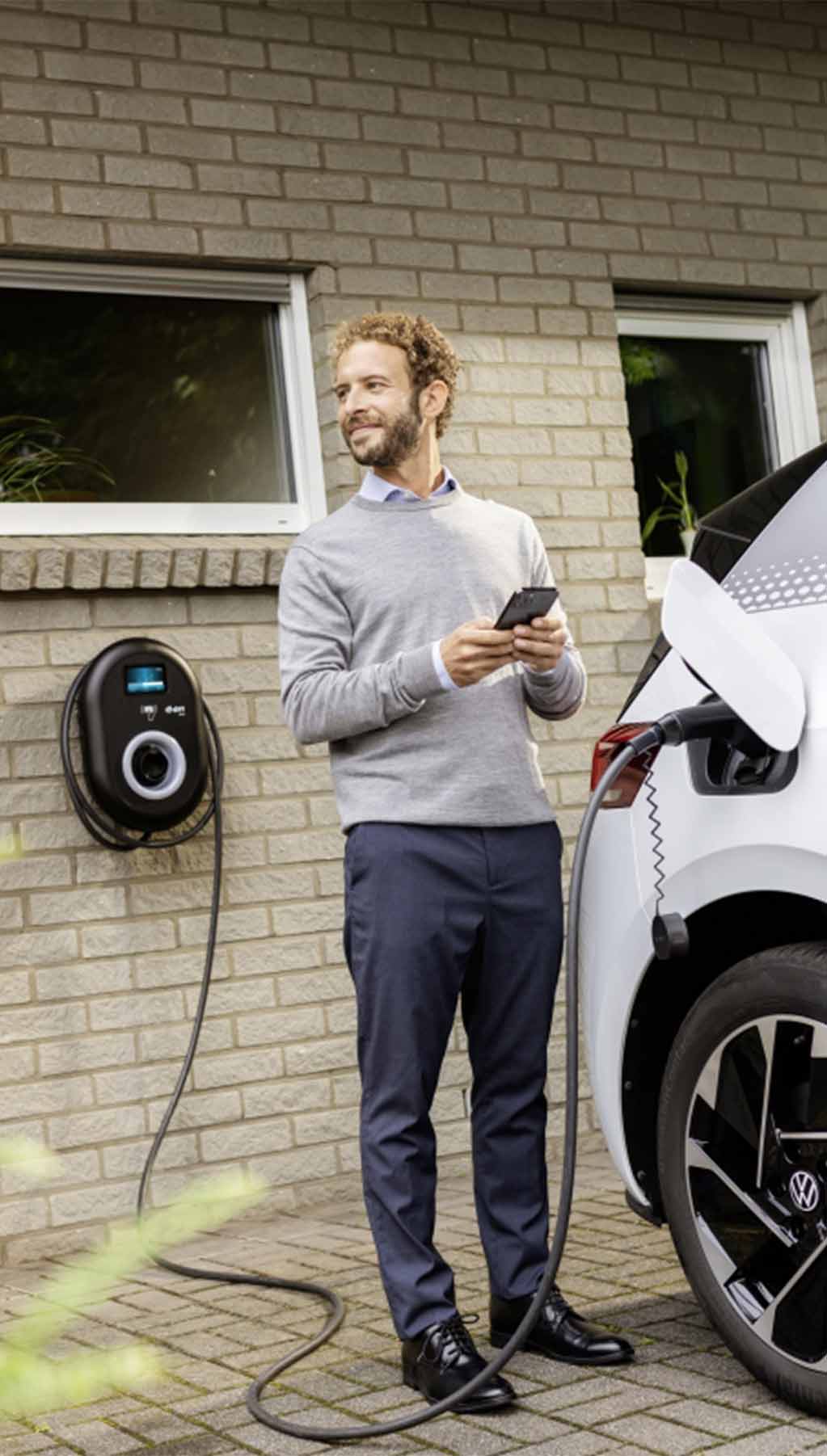
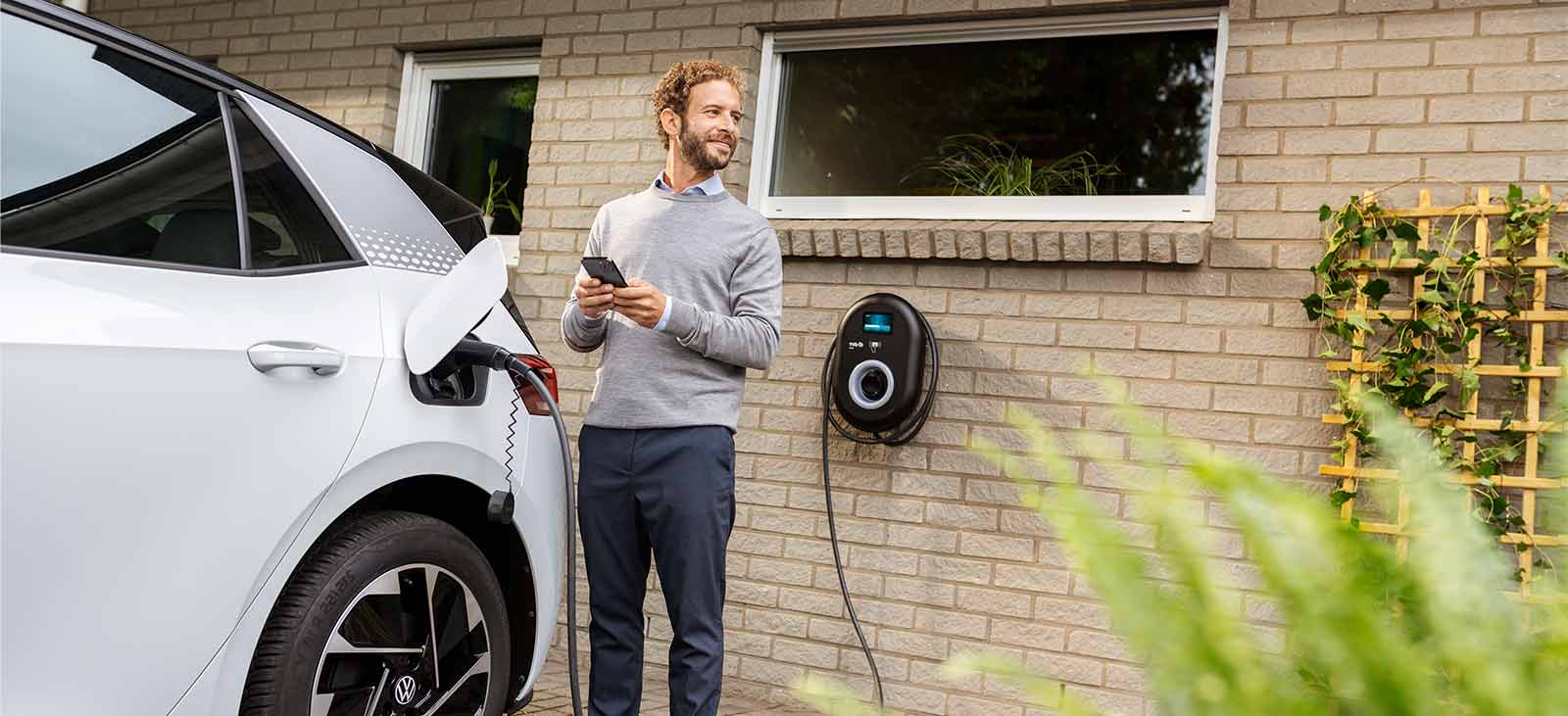
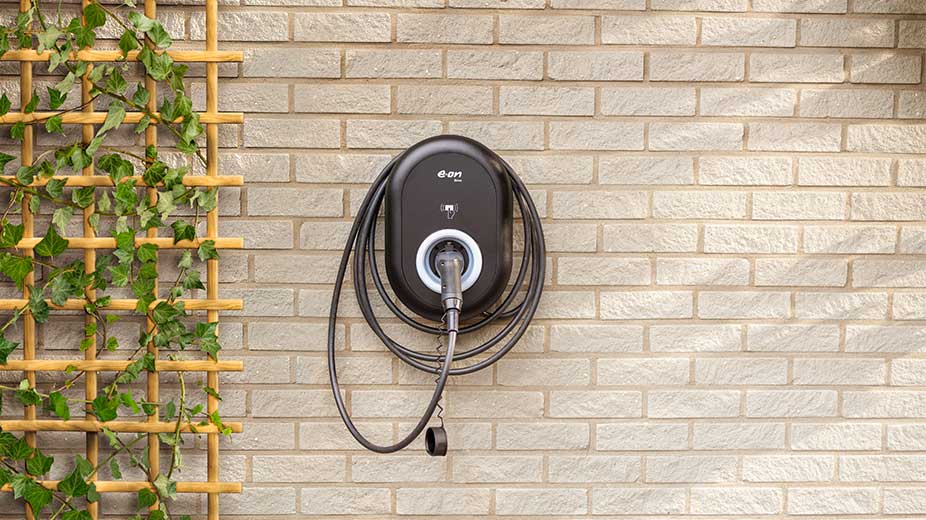
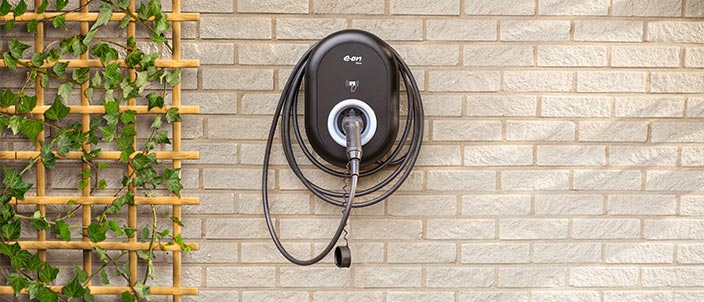

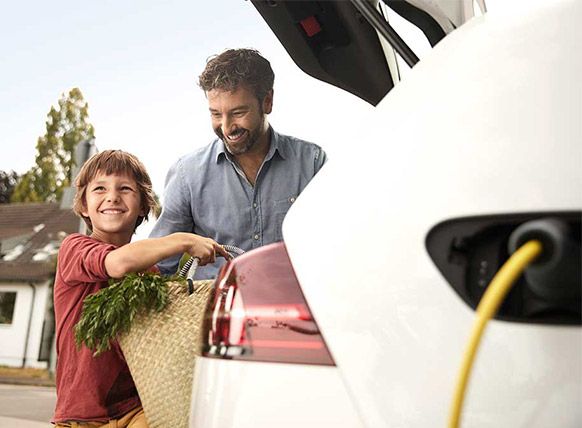
.jpg)
.jpg)

